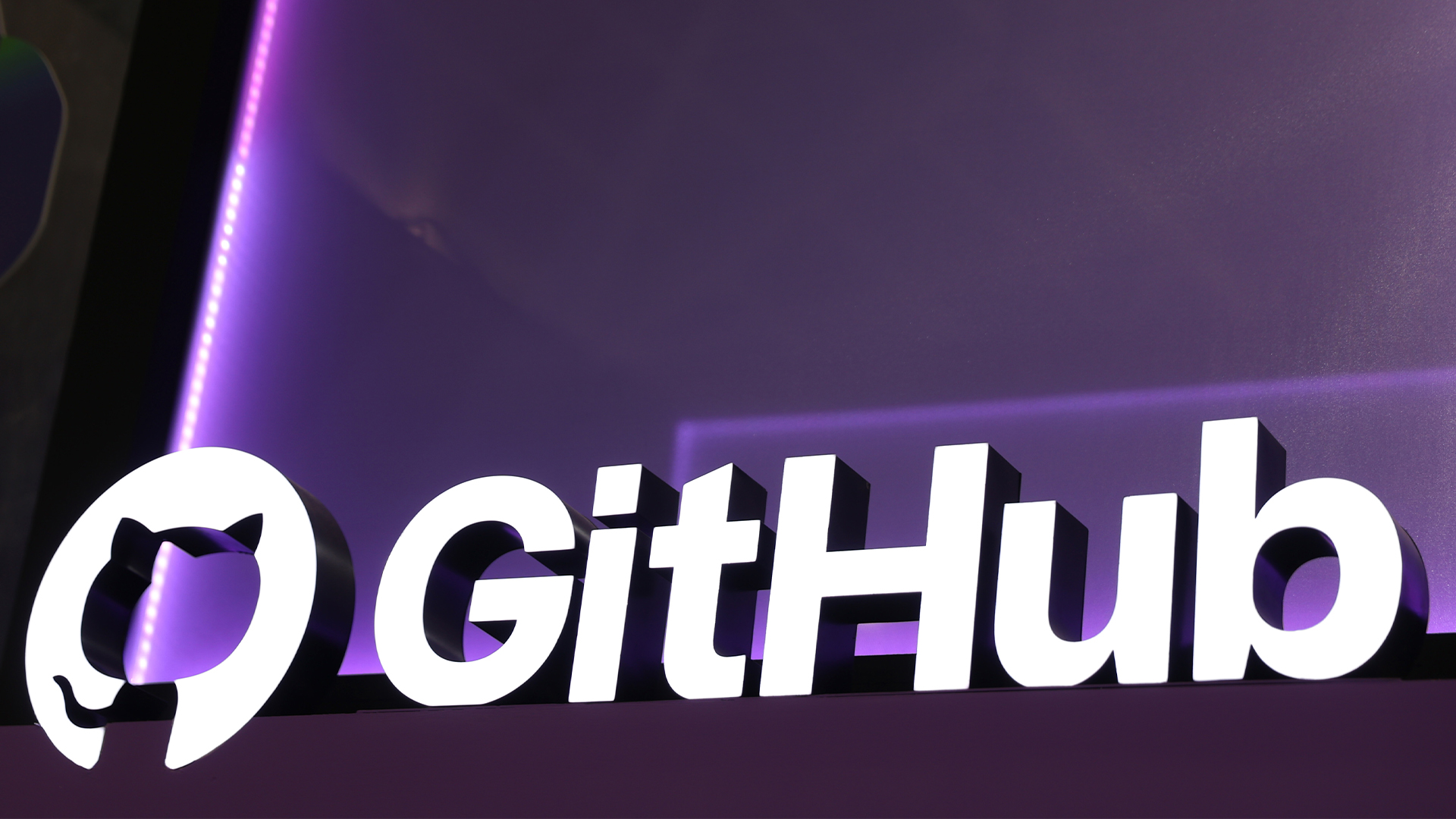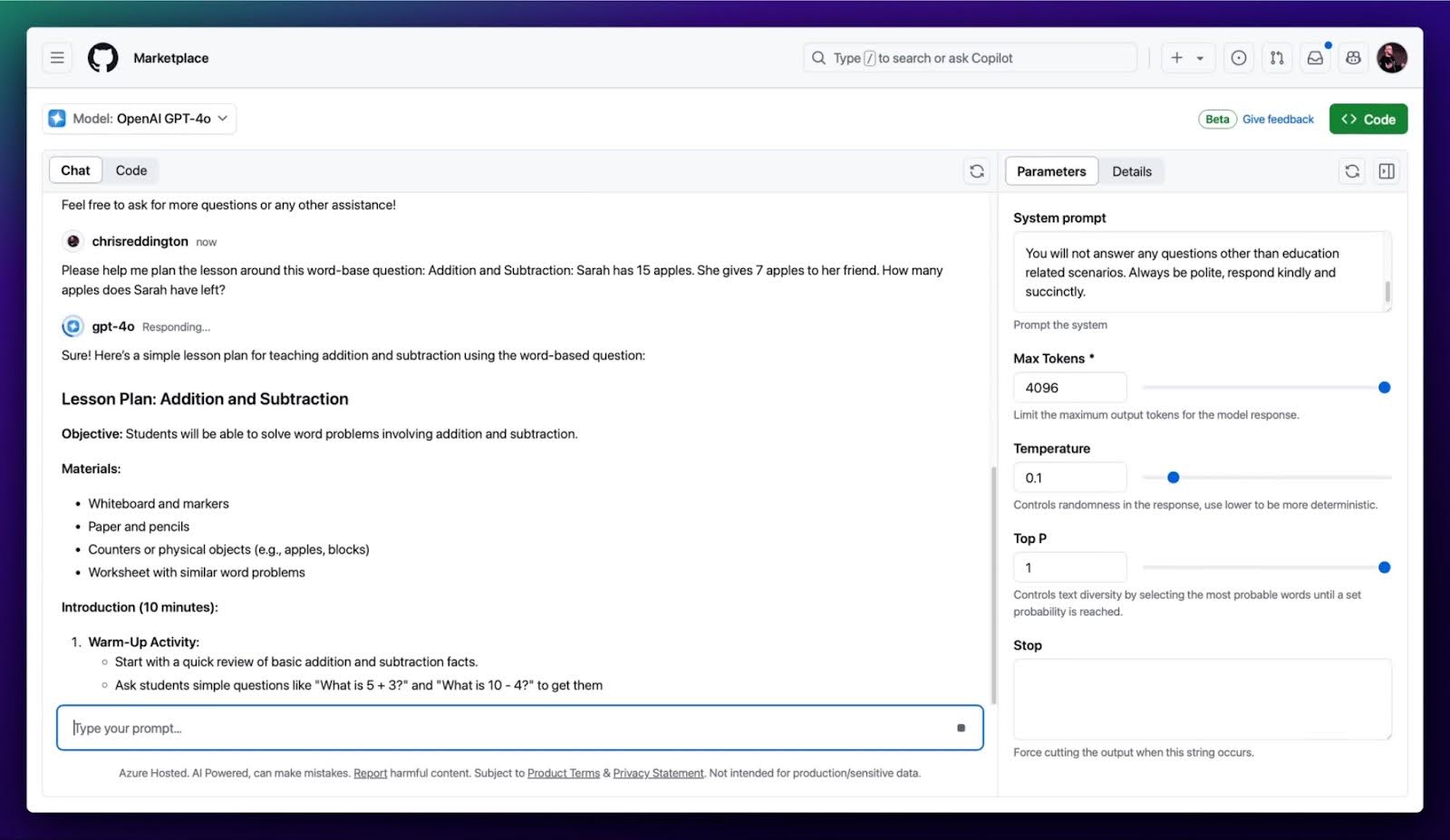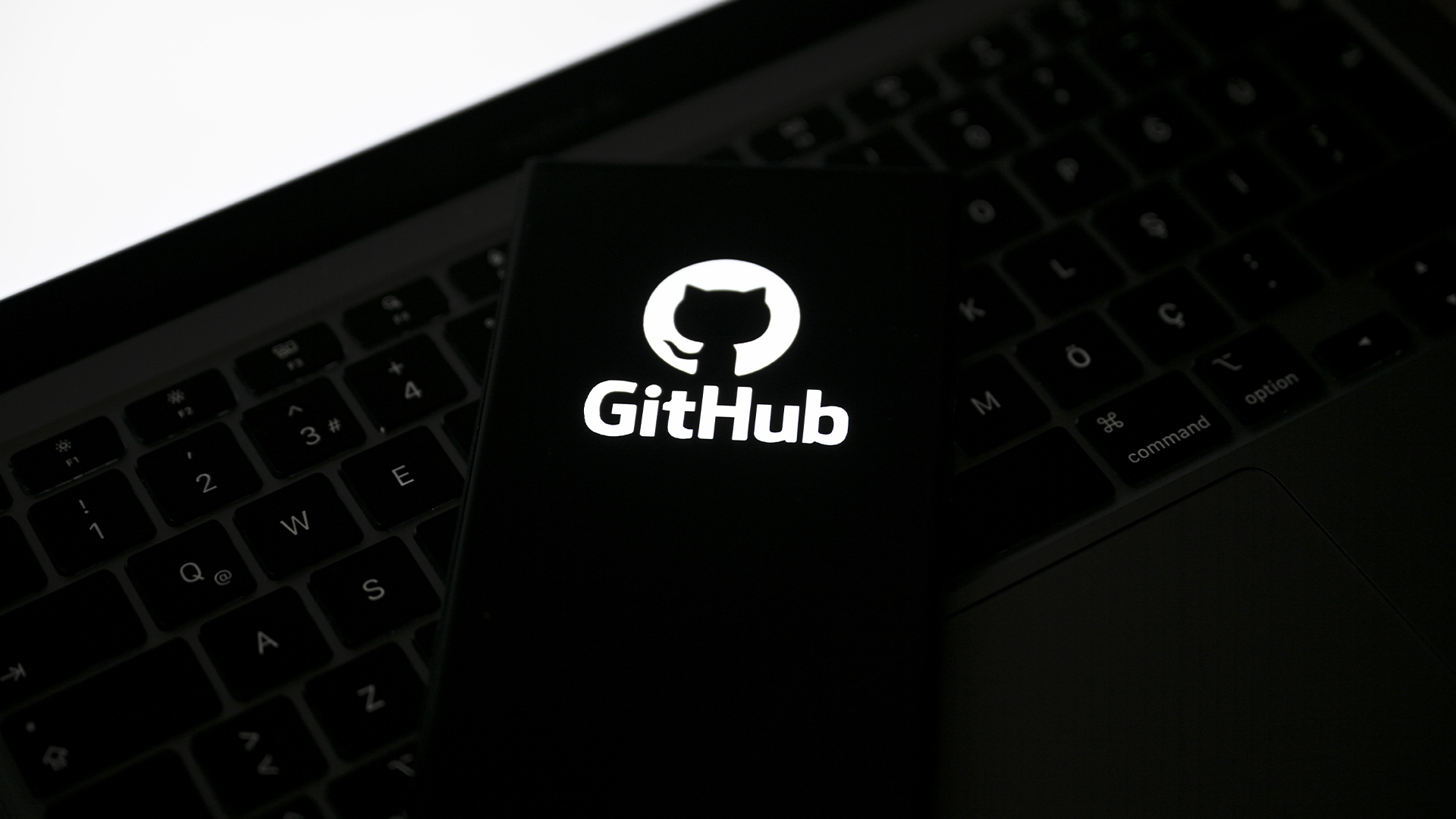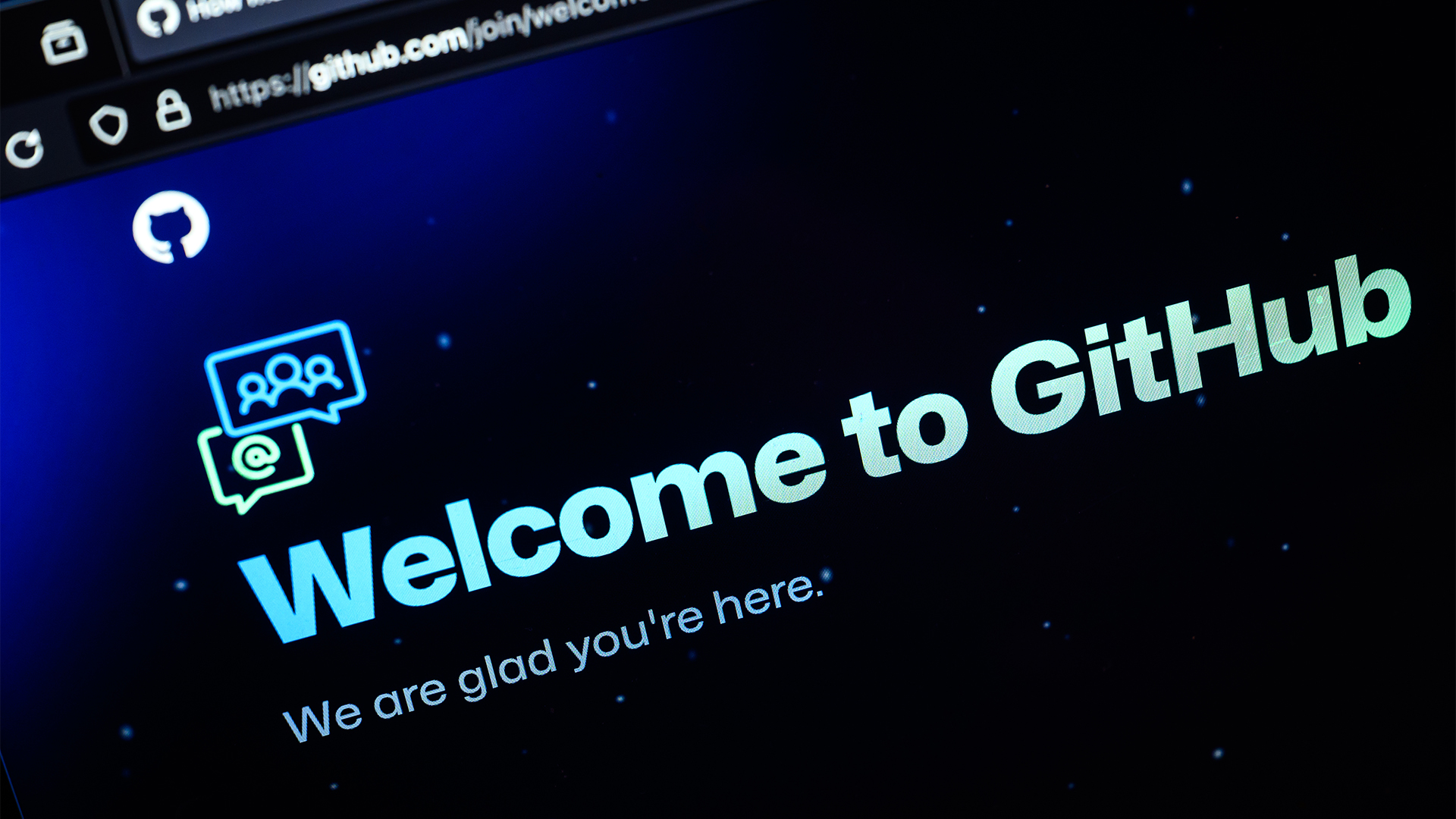Everything you need to know about GitHub Models, the new AI testing ‘playground’ for developers
GitHub Models allows developers to test and compare large language models and integrate them directly within their workflows


GitHub is aiming to make AI models more accessible to developers with the launch of GitHub Models.
The new feature gives free access to AI models including Meta's Llama 3.1, OpenAI's GPT-4o and GPT-4o mini, Cohere's Command, and Mistral AI's Mistral Large 2, directly in GitHub.
This, GitHub said, will allow developers to try out and compare the capabilities of the various different models directly within GitHub Codespaces or Visual Studio Code, and then integrate generative AI models into their own applications.
The aim is to make it simpler for developers to explore different AI models in an interactive playground and develop code using their existing GitHub identity.
"With GitHub Models, more than 100 million developers can now access and experiment with new AI models where their workflow is — directly on GitHub," said GitHub CEO Thomas Dohmke.
"From OSS repositories to Copilot Extensions to GitHub Models, it is intentional that we bring as many partners into GitHub as possible. The world’s developers deserve to build with a wide array of world class AI."
How devs can use GitHub Models
Once developers have tried out the different models and like what they see, GitHub has created a 'glide path' to bring the models to their developer environment in Codespaces and VS Code.
Get the ITPro daily newsletter
Sign up today and you will receive a free copy of our Future Focus 2025 report - the leading guidance on AI, cybersecurity and other IT challenges as per 700+ senior executives
When they're ready to go to production they can access an Azure software development kit (SDK) to connect to Azure AI.
The Azure AI Inference SDK provides client libraries in Python and JavaScript, with support for C# and .NET coming soon. Microsoft said SDK makes it easy to integrate AI into applications by simplifying common tasks related to authentication and security, and retries in a variety of programming languages.

The GitHub Models 'playground' allows devs to experiment with different AI models
"We’re proud to be an early part of GitHub Models, enabling more developers to interact with and utilize Cohere’s technology through Azure to power and inspire more applications that solve real-world problems," said Aidan Gomez, CEO and co-founder of Cohere. "GitHub and Microsoft are key partners to us in bringing AI solutions to all."
GitHub claims that its Copilot is by far the most widely adopted AI-powered developer tool, with more than 77,000 organizations – from BBVA, FedEx, and H&M to Infosys and Paytm – having adopted Copilot in the last two years. It accounted for over 40% of GitHub’s revenue growth this year.
RELATED WHITEPAPER

A number of organizations have already been testing GitHub Models.
"As an AI start-up founder and open source maintainer, GitHub Models enables my team to access and experiment with various LLMs in one place," said Anand Chowdhary, co-founder of FirstQuadrant. "This streamlines our development and lowers the entry barrier for building AI apps."
GitHub said that as time goes on, it plans to add more models to its platform.
Emma Woollacott is a freelance journalist writing for publications including the BBC, Private Eye, Forbes, Raconteur and specialist technology titles.
-
 Bigger salaries, more burnout: Is the CISO role in crisis?
Bigger salaries, more burnout: Is the CISO role in crisis?In-depth CISOs are more stressed than ever before – but why is this and what can be done?
By Kate O'Flaherty Published
-
 Cheap cyber crime kits can be bought on the dark web for less than $25
Cheap cyber crime kits can be bought on the dark web for less than $25News Research from NordVPN shows phishing kits are now widely available on the dark web and via messaging apps like Telegram, and are often selling for less than $25.
By Emma Woollacott Published
-
 Microsoft justifies 365 price increases after MP concerns
Microsoft justifies 365 price increases after MP concernsNews Microsoft’s UK VP of external affairs has defended the tech giant's price increases
By George Fitzmaurice Published
-
 Microsoft is ending support for the Remote Desktop app – here are three alternatives you can try instead
Microsoft is ending support for the Remote Desktop app – here are three alternatives you can try insteadNews Microsoft has announced plans to end support for its Remote Desktop application in just over two months.
By George Fitzmaurice Published
-
 Turns out AI isn't that popular at work – just 4% of workers use the technology in the majority of daily tasks, but developers are among the top early adopters
Turns out AI isn't that popular at work – just 4% of workers use the technology in the majority of daily tasks, but developers are among the top early adoptersNews Research from Anthropic shows that while AI adoption is sluggish in most professions, software developers and writers are very keen.
By Nicole Kobie Published
-
 GitHub's new 'Agent Mode' feature lets AI take the reins for developers
GitHub's new 'Agent Mode' feature lets AI take the reins for developersNews GitHub has unveiled the launch of 'Agent Mode' - a new agentic AI feature aimed at automating developer activities.
By Ross Kelly Published
-
 GitHub just launched a new free tier for its Copilot coding assistant – but only for a select group of developers
GitHub just launched a new free tier for its Copilot coding assistant – but only for a select group of developersNews Limited access to GitHub Copilot in VS Code is now available free of charge
By Nicole Kobie Published
-
 Recall arrives for Intel and AMD devices after months of controversy
Recall arrives for Intel and AMD devices after months of controversyNews Microsoft's Recall feature is now available in preview for customers using AMD and Intel devices.
By Nicole Kobie Published
-
 Are ‘ghost engineers’ stunting productivity in software development? Researchers claim nearly 10% of engineers do "virtually nothing" and are a drain on enterprises
Are ‘ghost engineers’ stunting productivity in software development? Researchers claim nearly 10% of engineers do "virtually nothing" and are a drain on enterprisesNews The study used an algorithm to assess the amount of work being done by software engineers at hundreds of firms
By George Fitzmaurice Published
-
 Everything you need to know about the Microsoft outage
Everything you need to know about the Microsoft outageNews After a day of chaos, the worst of the Microsoft outage appears to have passed, but some problems still remain
By Emma Woollacott Published